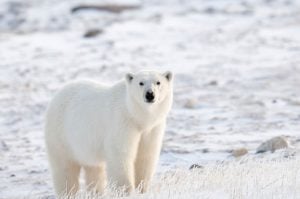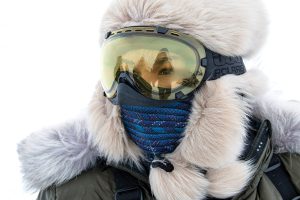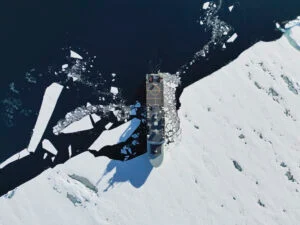We’re thrilled to bring you the first of three episodes from our December 2022 visit to Iqaluktuuttiaq (Cambridge Bay), Nunavut, where we visited with the community and spent time at the new Canadian High Arctic Research Station. CHARS, as it’s known, is an effort to move the center of gravity for science and research in Canada a little further north, according to David Hik, Chief Scientist and Executive Director of Programs with Polar Knowledge Canada, which operates the station. In this fascinating episode, we’ll explore the $250-million, state-of-the-art facility, which opened in 2019. We’ll talk to people involved on how this represents a new chance to blend traditional Inuit knowledge with science in an effort to overcome some big issues, not least of which is the impact of climate change in the Arctic, where temperatures are rising at a rate six times faster than in southern Canada.
Passing the mic
The visit to Iqaluktuuttiaq saw Canadian Geographic and Polar Knowledge Canada team up to deliver a podcasting workshop for local Inuit youth, empowering them with the tools and know-how to tell their own stories in their own voices. Working with Explore host David McGuffin in the recording studio at CHARS, the youth learned the basics of conducting interviews, recording sound, and editing clips together to create a finished podcast. Watch the video below to learn more.





